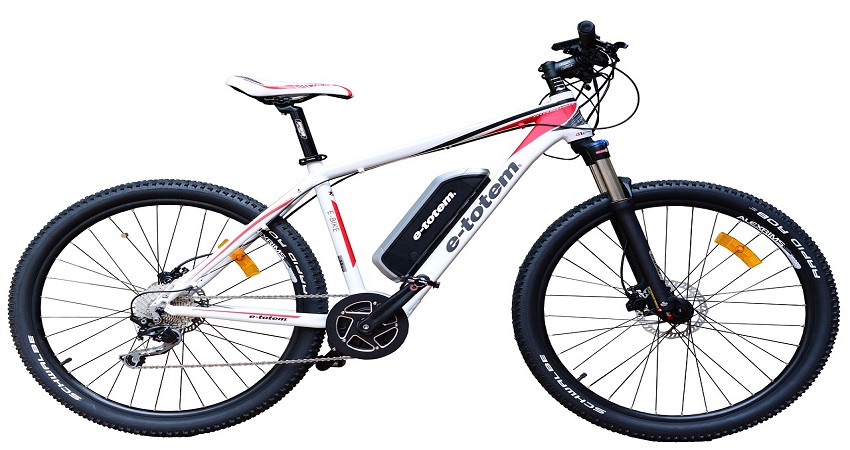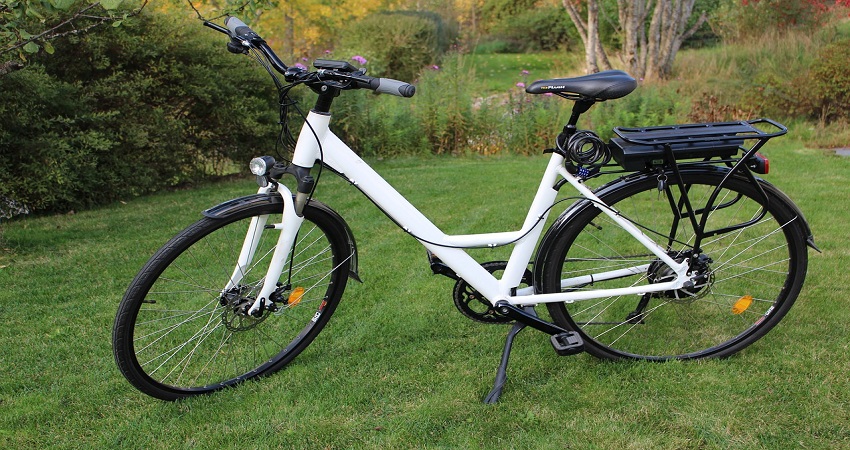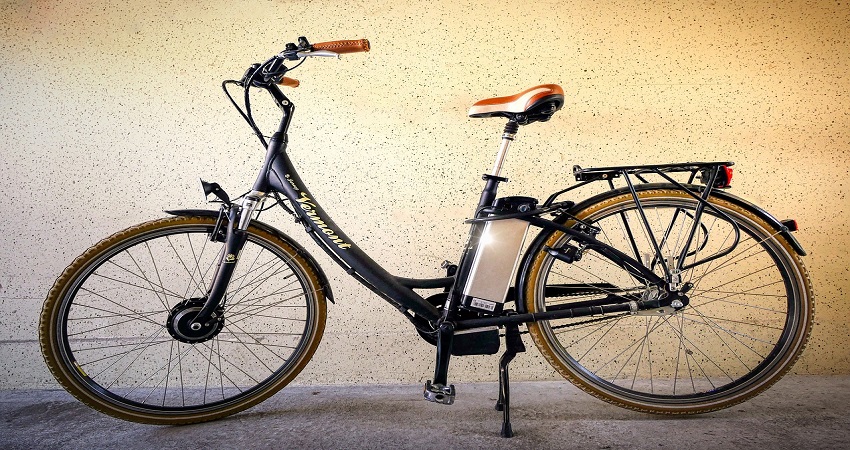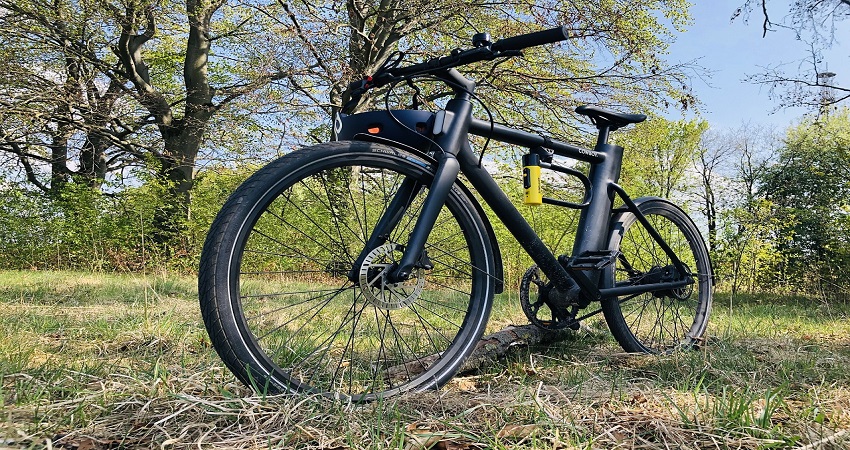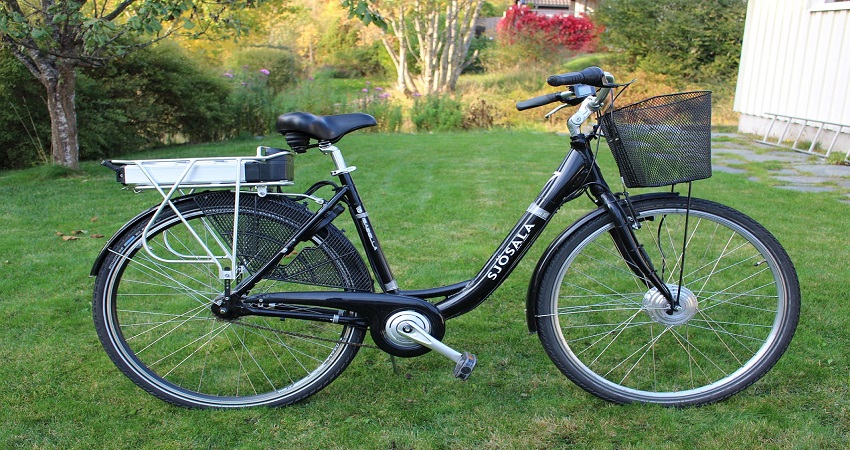Electric bike chargers are not universal. Each e-bike requires a specific charger due to different battery sizes and charging capacities, meaning a universal charger is not applicable.
Therefore, it is essential to use a charger designed for your specific e-bike to ensure proper charging and battery health. E-bikes have gained popularity as an eco-friendly and versatile mode of transportation. As with any electric device, one essential aspect of e-bikes is charging.
Charging an e-bike requires a compatible charger designed for the specific battery of the e-bike. The misconception of universal chargers for e-bikes can lead to potential damage to the battery and e-bike system.
Understanding the importance of using the right charger for your e-bike is crucial in maintaining its performance and battery lifespan. Let’s delve into the specifics of e-bike chargers and why they are not universal.
Exploring Electric Bike Chargers
Electric bike chargers are not universal for all bikes. Each e-bike has different battery sizes and capacities, requiring a specific charger. It’s essential to use a charger compatible with your bike’s battery to ensure optimal performance and longevity. Avoid using a universal charger, as it may not be suitable for your e-bike’s charging needs.
Introduction To Electric Bike Charger Compatibility
Electric bike chargers are an essential component of keeping your e-bike running smoothly and efficiently. However, the question of whether electric bike chargers are universal can be a confusing one for many riders. Understanding the compatibility of electric bike chargers is crucial to ensure you use the right charger for your specific e-bike battery.
Understanding The Importance Of The Right Charger
Every ebike has a different size and charging capacity, which means that each one requires a different charger. This indicates that ebikes have different batteries and therefore require a specific charger. A universal charger is not applicable in this case.
It’s essential to use the right charger to avoid any potential damage to your battery and ensure efficient charging for optimal performance. Electric bike chargers play a vital role in maintaining the longevity and reliability of your e-bike’s battery. Using the wrong charger can lead to improper charging, reduced battery lifespan, and even safety hazards.
Therefore, understanding the importance of the right charger is crucial for the overall performance and longevity of your electric bike’s battery.
By delving into the nuanced world of electric bike chargers, riders can gain a better understanding of the specific requirements for their e-bike’s battery charging, ensuring a seamless and efficient charging process.
Charger Variability Across E-bike Brands
Electric bike chargers are not universal; they vary between brands and models, as each e-bike requires a specific charger. Using the wrong charger can damage your battery, so it’s crucial to choose the right one for optimal performance and battery lifespan.
Are you wondering if electric bike chargers are universal? Well, the truth is that chargers can vary between electric bike brands and models. This means that not all chargers can be used interchangeably. Let’s explore why below.
Unique Chargers For Each E-bike Model
When it comes to electric bikes, each model has its own unique charger. This is because different e-bike models have different charging requirements. The charger must be compatible with the specific battery size, voltage, and charging capacity of the e-bike. Therefore, it’s essential to use the charger specifically designed for your e-bike model.
To illustrate this, let’s consider an example. If you have two electric bikes from different brands, they may have different battery sizes and charging capacities. Therefore, the charger for one e-bike may not be suitable for the other. Interchanging chargers in such cases can lead to ineffective charging and potential damage to the battery.
Potential Risks Of Interchanging Chargers
Using a charger that is not compatible with your e-bike can pose risks. The charger may not provide the correct voltage, resulting in inadequate charging or overcharging, both of which can affect the battery’s lifespan. Additionally, using an incompatible charger may cause damage to the charging port or even result in an electrical fire hazard.
Overall, it is crucial to understand that electric bike chargers are not universal across brands and models. Each e-bike has its own unique charger that is designed to meet its specific charging requirements. To ensure safe and effective charging, always use the charger provided by the manufacturer for your specific e-bike model. Interchanging chargers can be risky and may lead to battery damage or other complications.
Choosing The Correct Charger For Your E-bike
When selecting a charger for your e-bike, it’s crucial to choose one that matches your battery to ensure optimal performance. Electric bike chargers are not universal, as each bike requires a specific charger based on its battery size and capacity.
Using the correct charger helps prolong the lifespan of your e-bike battery and ensures efficient charging.
If you own an electric bike, then you know how crucial it is to have a reliable charger that is compatible with your bike’s battery. While it might be tempting to assume that all electric bike chargers are universal, the reality is quite different.
Each e-bike has a unique size and charging capacity, meaning that it requires a specific charger. Therefore, it is essential to choose the correct charger for your e-bike to ensure optimal performance and maximize battery life.
Maximizing Battery Life With The Right Charger
One of the key benefits of using the correct charger for your e-bike is the ability to maximize battery life. When you use the right charger, it delivers the appropriate voltage and current to your battery, ensuring a safe and efficient charging process. This not only helps to prolong the lifespan of your battery but also prevents overcharging or undercharging, both of which can potentially damage your battery in the long run.
Considerations When Selecting A Charger
When it comes to selecting the correct charger for your e-bike, there are a few essential considerations to keep in mind:
- Battery Type: Different e-bikes may use different types of batteries, such as lithium-ion or nickel-metal hydride. Make sure to choose a charger that is compatible with your specific battery type.
- Voltage and Current Rating: Check the voltage and current rating of your e-bike battery to ensure that the charger you choose matches these specifications. Using a charger with incorrect voltage or current rating can lead to inefficient charging or damage to your battery.
- Charging Time: Consider the charging time of the charger. Some chargers offer faster charging speeds, which can be beneficial if you need to recharge your e-bike battery quickly.
- Portability: If you frequently travel with your e-bike, you might want to choose a charger that is lightweight and compact for easy transportation.
By taking these considerations into account, you can select the correct charger for your e-bike and ensure that it provides optimal performance and longevity for your battery.
Debunking Universal Charger Myths
Electric bike chargers are not universal, as each e-bike requires a charger that is compatible with its specific battery. Using the wrong charger can harm the battery, so it’s important to choose the right one for your electric bike.
The Myth Of Universal E-bike Chargers
There is a common misconception that electric bike chargers are universal and can be used interchangeably across different brands and models of e-bikes. However, this is far from the truth. Each e-bike has a unique size and charging capacity, which means that every e-bike requires a different charger. This also means that e-bikes have different batteries, further emphasizing the need for specific chargers. So, the myth of universal chargers for e-bikes needs to be debunked.
Challenges And Limitations Of Universal Chargers
While the idea of a universal charger for e-bikes may seem convenient, it poses several challenges and limitations. Here are a few:
- Compatibility Issues: Universal chargers may not be compatible with the charging ports of different e-bikes. Most e-bikes have standard charging ports like USB or DC ports, but the connectors and voltages can vary.
- Charging Speed: Universal chargers may not provide the optimal charging speed for each e-bike. Different e-bike models require different charging speeds to ensure efficient battery charging.
- Battery Safety: Using a universal charger that is not specifically designed for a particular e-bike model can pose a risk to the battery’s safety. Incorrect voltages or currents can lead to overcharging or damaging the battery.
- Warranty Void: Using a non-manufacturer-approved charger can void the warranty of your e-bike. Manufacturers explicitly recommend using their approved chargers to ensure the longevity and performance of the battery.
Considering these challenges and limitations, it becomes clear that the concept of universal chargers for e-bikes is unrealistic and impractical.
It is essential to use the charger provided by the e-bike manufacturer or purchase a compatible charger specifically designed for your e-bike model. This ensures optimal charging performance and protects the longevity and safety of your e-bike’s battery.
Importance Of Manufacturer-recommended Chargers
Using the right charger for your electric bike is crucial for performance and safety. It’s essential to follow the manufacturer’s recommendations to ensure optimal charging and longevity of your e-bike battery.
Impact On E-bike Performance And Safety:
Chargers recommended by the manufacturer are specifically designed to provide the correct voltage and current for your e-bike battery, ensuring efficient charging without causing damage.
Adhering To Specifications For Optimal Charging:
Manufacturers recommend chargers based on the charging specifications of the e-bike battery, keeping the battery’s health intact and maximizing its lifespan.
Potential Innovations In E-bike Charging Technology
When it comes to e-bike charging technology, potential innovations could lead to universal chargers compatible across various e-bikes.
Advancements may include smart chargers with adaptable voltage and current settings, eliminating the need for specific chargers. This innovation would streamline the charging process and enhance user convenience.
Advancements In Charger Design
Electric bike chargers are evolving with advanced technologies. Manufacturers are enhancing the design for efficiency and compatibility with diverse e-bike models.
- Compact chargers: New designs are compact for portability and convenience.
- Faster charging: Innovative chargers offer rapid charging capabilities for quick turnaround.
- Smart features: Some chargers integrate smart functionalities such as auto shutoff for energy conservation.
Future Trends In E-bike Charging Solutions
The future of e-bike charging holds exciting possibilities with emerging trends. Innovations are focusing on enhancing user experience and sustainability.
- Wireless charging: Convenient wireless charging options for seamless user experience.
- Solar-powered chargers: Environmentally-friendly solutions harnessing solar energy for sustainable charging.
- Universal compatibility: Upcoming chargers aimed at universal compatibility to simplify charging needs.
Regulatory Measures Affecting E-bike Charging
When it comes to electric bike charging, a critical aspect is the regulatory framework dictating the compatibility and safety standards of e-bike chargers. Various proposed bans, safety standards, and regulations have been put forth with the aim of ensuring the efficient and safe charging of electric bikes.
Proposed Bans On Universal Chargers
Many countries are contemplating regulations that may ban the use of universal chargers for electric bikes. The reasoning behind such proposals stems from concerns about the potential risks posed by using non-standardized chargers. Standardization is essential to guarantee the safe charging of e-bikes and minimize the likelihood of accidents or malfunctions.
Safety Standards For E-bike Charging Systems
Another crucial aspect of regulatory measures affecting e-bike charging is the implementation of safety standards for e-bike charging systems. Governing bodies are advocating for the establishment of specific safety protocols and technical requirements that e-bike chargers must adhere to, ensuring that they are both efficient and safe for users.
Frequently Asked Questions
Can I Use Any Charger For An Ebike?
No, each eBike requires a charger specific to its battery compatibility for proper charging.
How Do I Choose An Ebike Charger?
To choose an ebike charger, ensure compatibility with your battery’s charging port for efficient and safe charging.
What Size Is The Charger On The Ebikes?
The charger size for ebikes varies and is not universal. Each ebike requires a specific charger based on its battery.
Will A 42v Charger Work On A 48v Battery?
No, a 42V charger will not work on a 48V battery. The charger needs to be compatible with the battery’s voltage.
Conclusion
Not all electric bike chargers are universal, as each e-bike has different size and charging capacity, necessitating a specific charger. Using a universal charger may harm your battery. It’s crucial to always use a charger that is designed to suit your battery pack, ensuring its longevity.

